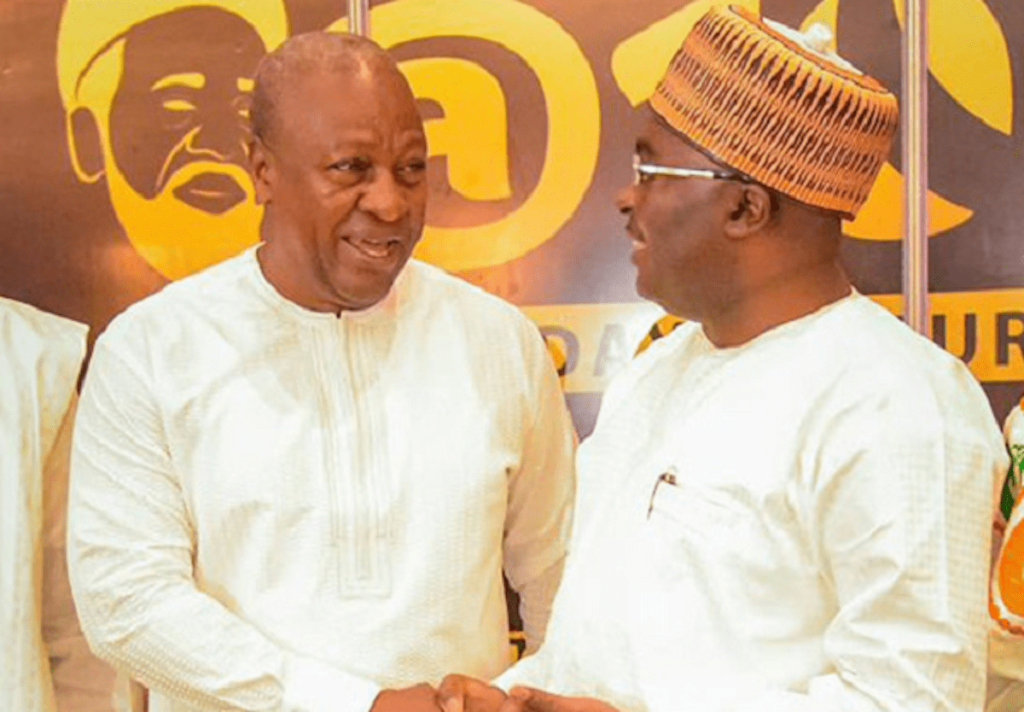A newly published study by Ghanaian communication scholar Alexander Tawiah, based in the U.S., reveals how the two leading presidential candidates in Ghana’s 2024 elections—John Mahama and Mahamudu Bawumia—strategically used social media platforms to frame critical national issues such as the economy and education.
The study, published in the leading International journal Journalism and Media (MDPI), offers valuable insights into how digital platforms like Facebook, Instagram, and X (formerly Twitter) were deployed not just as simple messaging tools but as structured framing mechanisms to shape public discourse and influence voter engagement.
Drawing on framing theory and multimodal discourse analysis, Tawiah’s study reveal three core dynamics in the candidates’ messaging strategies: (1) contrasting economic narratives (‘Resetting Ghana’ vs. ‘It Is Possible’), (2) competing visions of education (reform vs. continuity), and (3) distinct platform-specific engagement tactics. These strategies, the study argues, were carefully tailored to the technological affordances and user behaviors unique to each platform.
According to the research, Mahama’s campaign leaned heavily on crisis framing, emphasizing economic recovery and a bold policy proposal—the “24-hour economy”—as a solution to youth unemployment and inflation. His social media posts were visually interactive and consistently tagged with branded hashtags—#ResettingGhana, #Mahama4Change, and #LetsBuildGhanaTogether—that fostered a unified digital identity.
In contrast, Bawumia’s messaging framed the economy through a lens of continuity and technological advancement, highlighting initiatives like Mobile Money Interoperability and the Ghana Card. His campaign emphasized governance achievements and sought to inspire confidence through progress-oriented narratives, though it was less visually structured and interactive compared to Mahama.
On the issue of education, Mahama advocated for systemic reform with specific proposals like tuition-free public university admission for first-year students, support for technical training, and expanded student loans.
Bawumia, on the other hand, positioned himself as the defender of the Free SHS policy, which he framed as a legacy achievement of the NPP.
“The differences in framing strategies reflect the broader campaign identities of both candidates,” Tawiah notes. “Mahama positioned himself as a reformist offering policy-based alternatives, while Bawumia’s campaign was built around continuity, achievements, and digital transformation.”
The study also highlights how engagement varied by platform. Mahama’s use of Facebook Live and Instagram Reels generated significantly higher interactions, particularly around economic proposals.
While Bawumia’s campaign saw relatively high engagement on Facebook, his posts lacked interactivity and consistent focus on key policy issues.
Tawiah, who recently graduated as the top student from Texas State University’s MA in Mass Communication program, says the research fills a critical gap in West African political communication studies.
“In Ghana’s increasingly digital political landscape, understanding how candidates use social media to shape narratives is extremely important—not just for scholars but for voters and media practitioners,” he said.
The study argues that the effectiveness of a candidate’s political campaign on social media is closely linked to how well they tailor their messaging to the unique features of each social media platform. Thus, by strategically aligning their content with platform-specific affordances, candidates can maximize their reach and voter engagement.
Read the full report below:
Download PDF


